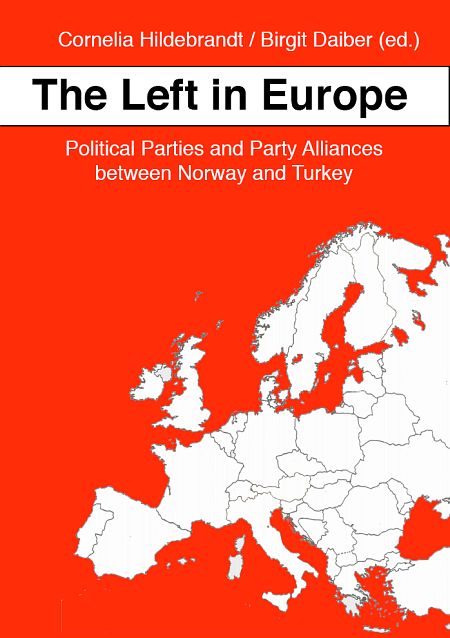M. Mitchell Waldrop: The Dream Machine: J.C.R. Licklider and the Revolution That Made Computing Personal (2001)
Filed under book | Tags: · arpanet, biography, computing, cybernetics, history of computing, history of technology, technology

While most people may not be familiar with the name J. C. R. Licklider, he was the guiding spirit behind the greatest revolution of the modern era. At a time when most computers were big, ponderous mainframes, he envisioned them as desktop tools that could empower individuals, foster creativity, and allow the sharing of information all over the world. Working from an obscure office in the depths of the Pentagon, he set in motion the forces that could make his vision real. Writing with the same novelistic flair that made his Complexity “the most exciting intellectual adventure story of the year” (The Washington Post), Waldrop presents the history of this great enterprise and the first full-scale portrait of the man whose dream of a “human-computer symbiosis” changed the course of science and culture, gave us the modern world of computing, and laid the foundation for the Internet age.
Publisher Viking, 2001
Sloan Technology series
ISBN 0670899763, 9780670899760
502 pages
PDF (DJVU; updated on 2012-7-17)
Comment (0)Cornelia Hildebrandt, Birgit Daiber (eds.): The Left in Europe. Political Parties and Party Alliances between Norway and Turkey (2009) [English/German/Spanish]
Filed under book | Tags: · communism, europe, european union, left, new left, politics, socialism

After thirty years the victorious march of neo-liberalism has ground to a halt at the beginning of the 21st century, having plunged the world into financial and economic crisis. For the first time a financial and economic crisis has coincided with social, environmental and climatic crises. The scale of the social deformations causing all this, the increases in social divisions, hunger and poverty, are already visible in all European countries. But no one knows yet how this crisis will end, and that goes for those on the Left as well.
In the past the European Left has identified and analysed many problems and proposed solutions. Many of these proposals, such as the control of financial markets, the Tobin tax, the closing down of tax havens, the banning of derivatives and hedge funds, the expropriation of shareholders of big corporations, putting together stimulus packages, and the introduction of a minimum wage, are being adopted under pressure of necessity by the ruling elites, who are even including some of them in their own programmes.
The crisis shows how right the demands of the Left were, though it also exposes its own crisis. The Left has so far proved incapable of social leadership. Its ability to rise above social, political and cultural differences and successfully act in concert is still in its infancy. Only now does the Party of the European Left have its first joint election platform.
On the other hand, there is plenty of common ground. All left-wing parties in Europe, of which we examine only a selection in this publication, stand for social justice, democracy, and a Europe in which people can live in dignity, social security and peace. All the parties presented here are arguing against the neo-liberal policies of the ruling elites and in so doing representing the interests of most Europeans. The European Left has sufficient experience and potential to wage joint struggles, such as those against the Iraq war, the neo-liberal slant of the proposed EU constitution, and the Bolkestein Directive. But all this has never been enough to rally people around a unifying alternative project that could mount a challenge to neoliberalism.
This raises several very different questions: Where are the causes of this situation to be sought? Where is existing potential for development being blocked and by what? How must the Left change in order to build up an alternative hegemonic bloc? How can it create a society in which the freedom of the individual is the condition for the freedom of all, a society which the left-wing parties of Europe can call socialist?
In order to discuss such questions with parties, trade unions and social movements on the spot the Rosa Luxemburg Foundation – supported by its offices in Brussels, Warsaw and Moscow – works closely with its partners Transform!Europe and the parliamentary group of the Left in the European Parliament. Together with the latter a long-term project on the non-socialdemocratic Left in the European countries was launched. Within this framework the country reports collected here constitute a first snapshot, a necessary basis for the elaboration of a joint research programme.
The primary intention is to give the reader an overview of the history and current situation of left-wing parties in Europe, it being remembered that the articles express solely the views of the authors.
The Left presents a very different picture in each of the individual countries, resulting from the different traditions and political structures in the country under consideration and from differences in the sense of identity of the various organizations. Among the left-wing parties selected by way of example for the present volume are some that have evolved out of former ruling communist parties, some that have a Eurocommunist background, some that come from the non-social democratic reformist Left, some that belong to the traditionally communist Left with a feminist extension, and others. (Preface)
Publisher: Rosa Luxemburg Foundation, Brussels, July 2009
PDF [English]
PDF [German]
PDF [Spanish]
Hessdörfer, Pabst, Ullrich (eds.): Prevent and Tame. Protest under (Self-)Control (2010)
Filed under book | Tags: · activism, control society, governmentality, neoliberalism, power, social movements, subjectivation, surveillance

The common dualistic approach to social movements tends to see power and resistance as separate and independent antagonists.
The contributors to this book aim to transcend that approach, arguing that to adequately analyze ongoing struggles, it is also critically important to trace the constitutive interconnectedness between social movements and power. This is the aim of the title “Prevent and Tame”: emergent strategies to prevent and tame protest—whether they are undertaken by the state or by factions within the movements themselves—have given rise to new kinds of social relations and regulations that call for a new approach to research on social movements and protest.
Inspired by Foucault and others, this book offers theoretical and empirical investigation into the implications that governmentality studies and subjectivation perspectives may have for a deeper understanding of the dynamics in the relationship between power and movements. The articles reflect on the effects of current neo-liberal or neo-social transformations on social movement practice, including the impact of surveillance, the criminalization and stigmatization of protest, and how these can lead movements to engage in self-taming behavior amongst themselves.
Taken as a whole, this book suggests that to take the struggles of social movements seriously, requires to acknowledge the complexity of the power dynamics in which they are involved. In so doing, the authors’ aim is not to tame protest by over-amplifying its apparent obstacles, but to prevent its energy from being pointlessly wasted or misdirected (i.e. by being spent in the wrong places, in false conflicts, or even in fighting the clouds they cast themselves).
Includes contributions by Stephen Gill, Peter Ullrich, Florian Heßdörfer, Andrej Holm, Anne Roth, Marco Tullney, Michael Shane Boyle, Darcy K. Leach, Sebastian Haunss and Nick Montgomery
Editors: Florian Hessdörfer, Andrea Pabst, Peter Ullrich
Publisher: Rosa Luxemburg Stiftung, Karl Dietz Verlag Berlin, November 2010
Series: RLF Manuskripte, Volume 88
ISBN: 978-3-320-02246-4

